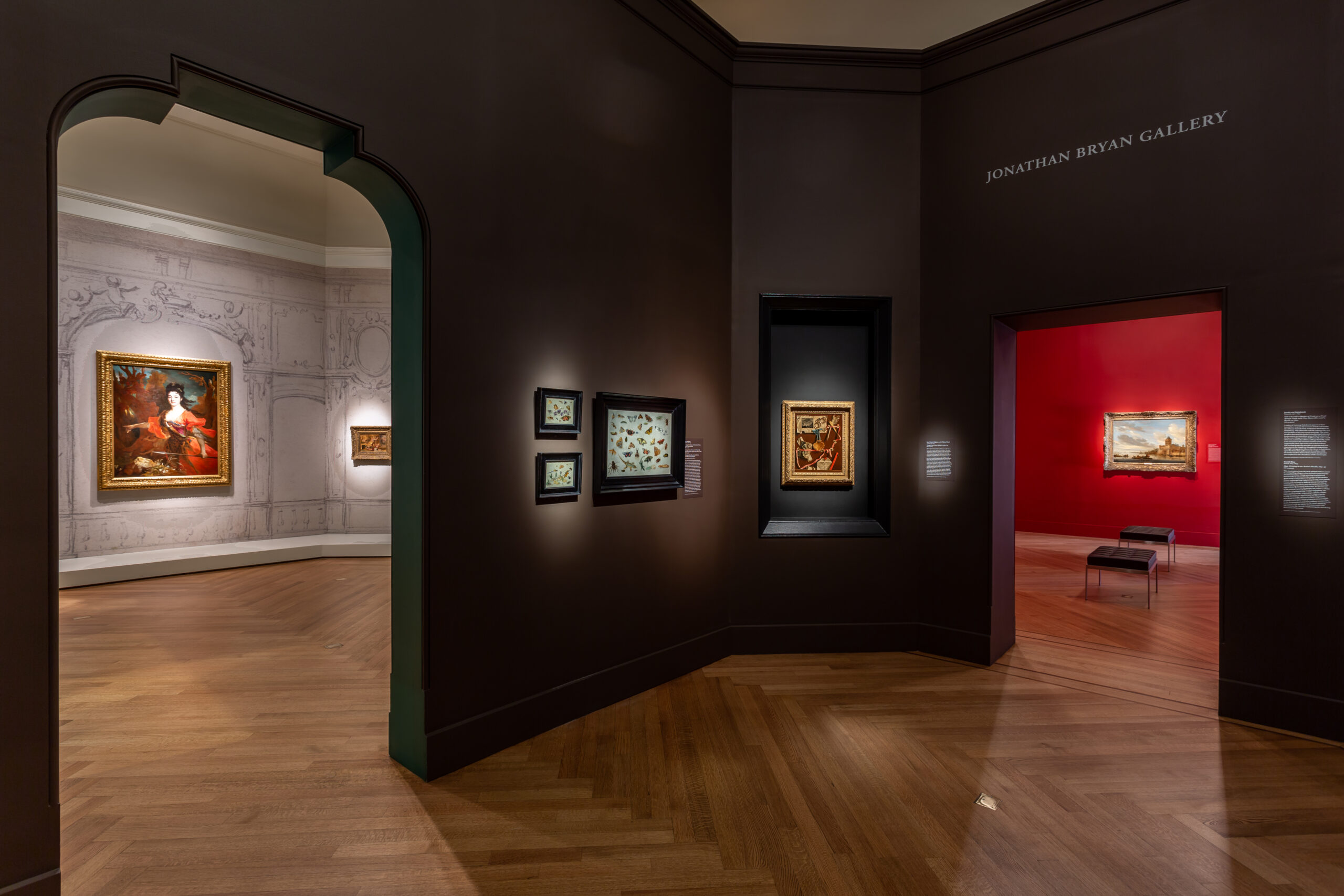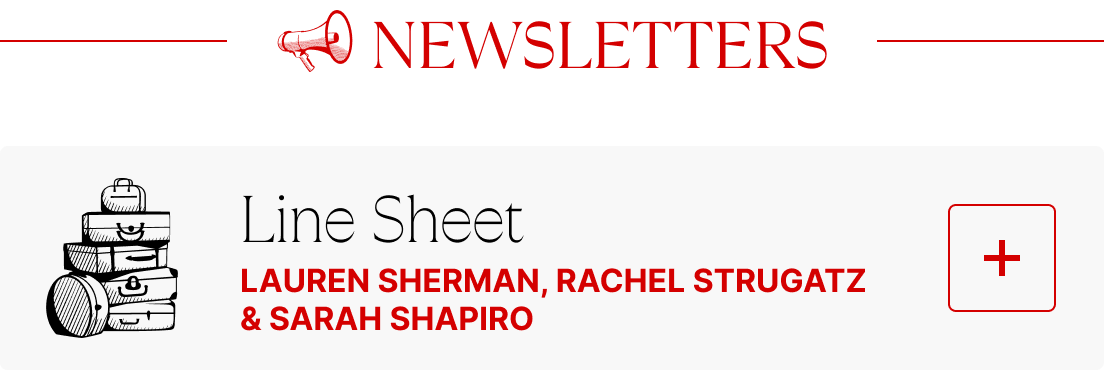Hello, sports fans, and welcome back to Wall Power, my
four-times-per-week private email on the inner workings of the art market—which includes a bonus Inner Circle issue every Wednesday for hard core professionals, ruthless advisors, billionaire (and aspiring billionaire) collectors, and true believers. I’m Marion Maneker.
Tonight, Julie Davich is going deep on the Saunders collection, which was announced late last week by
Sotheby’s. Estimated at $80 million, this will be the most valuable single-owner sale of Old Masters paintings to be offered ever. Sotheby’s is sufficiently pumped about this collection to have moved it to May, ahead of the normal schedule.
There’s an added benefit to scheduling the sale then. The preview and sale will allow collectors of modern and contemporary art—and their advisors—to see the works when
they are in town. Consider the Saunders sale as lead generation for the Old Masters category. As Julie and I have been telling you, collectors have become interested in Old Masters for the high quality of the art and the lower prices—in relative terms, of course. Julie gets into all of that below.
But first…
|
- A new front in the battle for Artnet: Late last week, as I recounted, Artnet selected a neutral board of directors at its contentious annual general meeting, but that doesn’t mean the warring factions have made peace. Over the weekend, the company released a statement, signed by V.P. Sophie Neuendorf, still obsessing over the company’s largest
shareholder, Neuendorf nemesis Rüdiger Weng—even though by then, Weng had been outmaneuvered by offstage investor Andrew Wolff. “The meeting was at times turbulent,” the weekend statement reads, “as one or more shareholders attempted to push their personal interests with the help of professional disruptors.”
Presumably, Sophie is referring to the conspiracy theory that Weng had hired a disruptive shareholder to prolong the meeting. Curiously, for what
it’s worth, another neutral attendee speculated that the raucous 14-hour meeting had been staged by the Neuendorfs themselves, in a desperate attempt to stall the proceedings until a white knight emerged in the form of Wolff.
Perhaps not surprisingly, there’s a new showdown brewing, after Wolff seemed to be engineering a takeunder, wherein the
stock price plummets to facilitate a takeover. There’s also been talk of the company needing to borrow another $1 million from newly elected board member Roy Israel, just to make payroll in the coming months. Meanwhile, a San Francisco tech turnaround investor named Garry McGuire—who unexpectedly announced at the board meeting that he planned to make a bid—has maneuvered himself closer to center stage in the melodramatic battle.
Anyway, the Neuendorfs
believe that Weng reneged on a previously agreed-on truce and sabotaged the company’s future by denying them the ability to raise capital. “Mr. Weng inexplicably failed to adhere to the agreement on the Supervisory Board election,” the statement continued tartly. “By doing so, he has once again prioritized his personal interests over those of the company—despite the fact that the art market has been in a severe crisis for years.”
Who betrayed whom? We’ll probably never know, but the
damage has been done. Artnet’s stock price dropped by as much as 25 percent during the four days following the meeting. Meanwhile, Wolff’s takeunder plans—which would eventually involve rolling Artnet up with other similar digital art businesses—seemed to be proceeding apace until today… when Weng announced that he would pledge his 29.5 percent stake in Artnet to Art Technology Holdings, a company McGuire formed less than a year ago. The partnership would allow McGuire to make his own
bid to acquire Artnet at €11 a share, which was nearly twice the stock price on Monday. (Artnet shares are now trading in the middle ground of €7 a share, as investors weigh which way to go.)
Unlike Wolff’s planned roll-up, ATH believes that it can invest up to $10 million in the company, install experienced professional management instead of family members, and add value across the art market value chain. I haven’t made a secret of my skepticism. Despite its traffic and brand, I worry
that there isn’t a large enough addressable market for a revamped and fully functioning Artnet to grow into the valuation worthy of an acquisition and subsequent investment. But McGuire is a good tech salesman. Which means the battle for Artnet has suddenly shifted: It’s no longer a German civil war, but a struggle between Silicon Valley and Wall Street.
|
Now, let’s get to the main event …
|
|
|
Sotheby’s has set its most valuable Old Masters auction ever for May: the
Saunders collection, the product of a four-year buying spree fueled by Wall Street money, which could fetch more than $80 million.
|
|
|
“Old Masters lovers share several traits: curiosity, passion for provenance,
love of color and history,” wrote collector Jordan Saunders, who amassed one of the most consequential collections of such paintings in the 20th century along with her late husband, the legendary Morgan Stanley banker and private equity O.G. Thomas Saunders III. “I am in awe of the artists’ techniques, the stories they tell, all the tiny details, and, in some, the hidden symbolism.”
This May, the Saunders collection will go on sale at Sotheby’s, in New York, with an estimate of $80 million—the most valuable single-owner compilation ever to hit the block within the category. “There are so many high-quality, fabulous-condition pictures in the sale, just one after the other,” said George Wachter, a Sotheby’s chairman and co-worldwide-head of Old Masters paintings—so many, in fact, that Sotheby’s felt it could sustain a
single-owner event outside the regular Old Masters marquee sale calendar. Wachter had to alert his clients to add it to their travel schedules. (Disclosure: I worked on the Saunders collection proposal when I was at Sotheby’s.)
The timing is fortuitous. May is also when all the modern and contemporary collectors are in town, and art advisors have been pitching their clients on the value of Old Masters. Evidence from London
this week—where Sotheby’s displayed highlights from the Saunders collection alongside the presale viewing of modern and contemporary art—suggests they’re onto something. A Sotheby’s spokesman told me that a well-known contemporary artist happened upon the Saunders trove and “got really jazzed,” attracting a crowd around her as she waxed eloquent about the brushwork.
|
The Saunders’ New York apartment. Photo: Courtesy of Sotheby’s
|
The couple’s collection spans the 16th to 19th centuries, and represents some
of the greatest artists of that era, ranging from still lifes by Jan Davidsz. de Heem and Luis Meléndez to portraits by Frans Hals and Thomas Lawrence to vedute by Canaletto and Francesco Guardi, as well as works by Gerrit Dou and Peter Paul Rubens. The auction comprises 56 works, with 42 being offered in a dedicated single-owner sale
and the rest in the various-owners sale the following day. By comparison, Sotheby’s most valuable collection of Old Masters sold to date was the Fisch Davidson collection, which made $76 million in 2023—it was only 12 pictures, all Italian Baroque, with two-thirds of the value coming from just two Rubens paintings.
This will be the first time in decades that the Saunders paintings are coming on the market, since the couple bought many of them via private
transactions between 1998 and 2002. “The Saunderses wanted beautiful pictures in wonderful condition,” said Wachter, who worked closely with the couple to assemble the collection that would fill their triplex penthouse at 812 Park Avenue. “What’s amazing is how I managed to find all these things at that time. Not sure I could do it in the same way today,” he told me, in part because Old Masters collections like those of Renata and Michal Hornstein,
Rose-Marie and Eijk van Otterloo, and Susan and Matthew Weatherbie have been donated to museums.
|
The Saunders’ collecting journey is ending right where it started. In January
1998, Sotheby’s client services executive Mish Tworkowski invited Jordan to lunch at the auction house, where they wandered down to the Old Masters exhibition and happened upon the painting View of the Isola della Giudecca, by Guardi. Tworkowski introduced her to Wachter, who spoke eloquently about the composition. The Saunderses went on to purchase the Guardi at auction for $1.3 million. (It’s being offered in May at an estimate of $4 million.) In the same sale, they
underbid a portrait by Johannes Cornelisz Verspronck that ended up being bought by the National Gallery for $1.65 million.
Thus began their four-year buying spree and decades-long friendship with Wachter—the beau ideal of how auction house marketing is supposed to work. He advised them in putting together their collection at a time when auction houses specialists still played that
role, traveling with them to Rome and Montreal to view pictures, sometimes accompanied by their interior designer, Ina Lindemann, whom Wachter would later hire to decorate his own home. He brokered the Saunders’ private purchase of eight exceptional Old Masters works from the Hornsteins, including the Dou, Lawrence, and Meléndez.
It was also Wachter who steered them to a landscape painting
by Frans Post that had been discovered in a barn in Connecticut. The painting, which they found out had belonged to Louis XIV, was filthy. But the Saunderses paid $2.2 million for it on Wachter’s advice and sent it to a conservator, who started by cleaning a small square of the sky, uncovering a brilliant blue, at which point the couple knew they had a masterpiece. Wachter advised them to copy an elaborate frame from the Rijksmuseum, which took a Dutch artisan a
year to replicate. The painting, in that frame, is now being offered at Sotheby’s at an estimate of $6 million. (The artist’s current record, set in 1997, is $4.5 million.)
The auction also includes a pair of Guardi paintings that the couple acquired at Sotheby’s in 2000 for $5.6 million and are now being offered for $10 million. (In that same auction they underbid Rubens’s Portrait of a Man as Mars, which would eventually end up in the Fisch Davidson
collection.) Their primary competitor for the Guardis happened to be at lunch and unreachable when the lot came up at auction, so they got the painting for far less than they might have otherwise.
|
The Saunders collection on view at the Virginia Museum of Fine Arts. Photo: Sandra
Sellars
|
Thomas Saunders, who died in 2022, was a managing director and chairman at
Morgan Stanley for two decades—where he structured I.P.O.s for companies like Apple and GE, and did the underwriting for Margaret Thatcher’s telecom privatization—before going on to co-found his own private equity firm. He also served as chairman of the Heritage Foundation, which of course famously authored Project 2025. The couple were active philanthropists, with much of their largesse going to Virginia institutions such as UVA, the Virginia Military Institute, and the Thomas
Jefferson Foundation.
Jordan first tested the auction waters by offering English and European furniture, silver, ceramics, and Chinese export porcelain in a single-owner sale at Sotheby’s in February 2024, including items she’d purchased in the Duke and Duchess of Windsor sale there in 1998. The sale of 316 objects made $3.3 million, against an estimate of $2 million.
Additional highlights in the upcoming sale include a de Heem large-scale floral still life at an estimate of $8 million, higher than the artist’s current auction record of $7.6 million. Meléndez’s Still Life with a Cauliflower is estimated at $5 million, and Lawrence’s Portrait of Miss Julia Peel is estimated at $6 million. It is the best example by the artist to appear at auction in nearly two decades, when the auction
record of $4 million was set. A rare pair of Hals portraits is on offer for $6 million, and a genre scene by Dou, a student of Rembrandt, is estimated at $5 million. Thomas recalled seeing the Dou painting on view in a 2001 traveling exhibition of the artist’s works: “What can I say about my feelings as I looked at our Dou hanging in the National Gallery in Washington next to Queen Elizabeth II’s Dou? God bless America!”
After London, the paintings are touring to Amsterdam and Brussels during TEFAF Maastricht, then Los Angeles and Hong Kong in April. As Jordan would tell the next generation of collectors, “Long live the hunt!”
|
A reader teased me about Julie’s coverage of Nino Mier Gallery’s show of
Deborah Druick paintings in Sunday’s email. (Mier ran into difficulties last year when it was reported that he had been underpaying his own artists.) That’s fine. If we refused to write about any dealer who had run into some difficulties or even, possibly, behaved badly, we would have no one to write about at all. But that interaction started a conversation. (By the way, the reader did not realize that when you reply to one of these newsletters, it does
indeed go straight to my pocket—and I’ll write you back!)
The reader also suggested that Puck allow comments for “interaction and engagement,” figuring it would do well, “since everyone I talk to about the art world wants to know what people are thinking and doing and why, etcetera.” These are all good points. But they also illustrate what makes Puck unique. So I thought I would take a moment to explain
what we’re trying to do here and how it benefits you.
First, we want your feedback—good or bad. Please feel free to object, correct, or simply add to our coverage. We strive to tell you what’s happening and why. But we cannot do it alone. In fact, a big part of what we’re doing here is reflecting back to you what we hear from you and others. So, please hit reply. Or text me at 917.825.1391. That number is
also good on Signal and WhatsApp. My email is indeed Marion@puck.news. Hit me up. The same goes for Julie, who can be reached at Jdavich@puck.news.
In short: The more you respond to us, the more we can present those comments here in the newsletter.
Anonymously, of course. It’s our job to fairly represent your thinking—even when it conflicts with or contradicts our own. A good contest of ideas is how we all shape and sharpen our thinking. That’s also how we engage our readers and let them know what people are thinking and doing, and why.
|
|
|
Puck founding partner Matt Belloni takes you inside the business of Hollywood, using exclusive reporting and
insight to explain the backstories on everything from Marvel movies to the streaming wars.
|
|
|
The ultimate fashion industry bible, offering incisive reportage on all aspects of the business and its biggest
players. Anchored by preeminent fashion journalist Lauren Sherman, Line Sheet also features veteran reporter Rachel Strugatz, who delivers unparalleled intel on what’s happening in the beauty industry, and Sarah Shapiro, a longtime retail strategist who writes about e-commerce, brick-and-mortar, D.T.C., and more.
|
|
|
Need help? Review our FAQ page or contact us for assistance. For brand partnerships, email ads@puck.news.
You received this email because you signed up to receive emails from Puck, or as part of your Puck account associated with . To stop receiving this newsletter and/or manage all your email preferences, click here.
|
Puck is published by Heat Media LLC. 107 Greenwich St, New York, NY
10006
|
|
|
|













